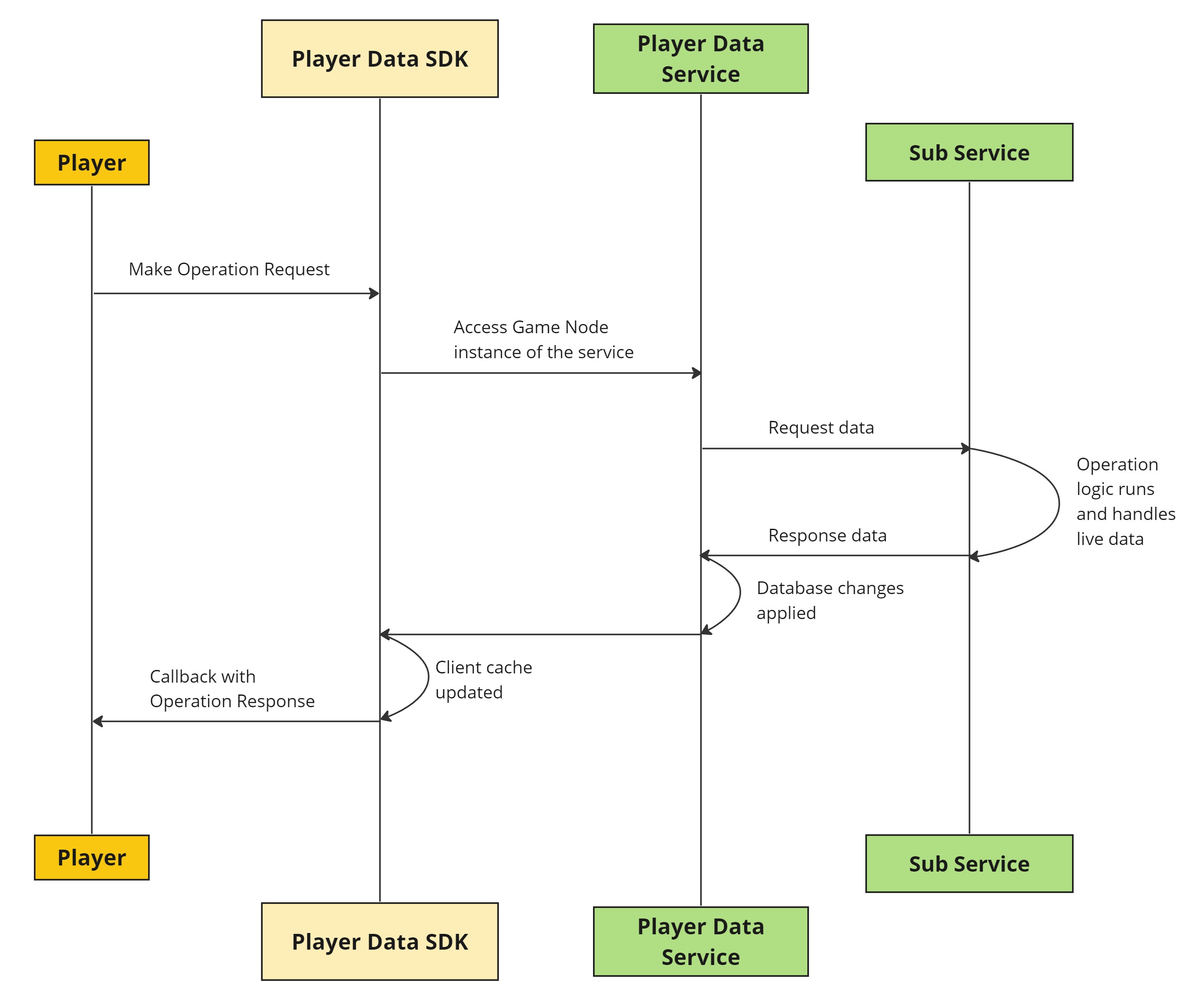Player Data #
Pragma Engine’s Player Data service contains the foundations and building blocks for storing player data and contextualizing said data with custom business logic. Every game’s player data feature is inherently unique, and the Player Data service allows you the flexibility to fully integrate and contextualize your player data features in Pragma Engine.
Player Data Overview #
All of the business logic and data models for a player data feature in Pragma Engine are authored by the developer, instead of being provided as a black-box solution. This means that as a developer, you get to:
- Define your player data features exactly the way you want to by using the Player Data service’s frameworks.
- Design the data model workflows for your player data feature.
- Author the request and response payloads associated with your player data feature, as well as the logic for each endpoint on how to modify the feature’s data.
The following graphics showcases how Pragma Engine manages Player Data.
The Player Data service can be used to define many different types of player data features such as MMR, loadouts, objective-based reward systems like battlepasses and quests, player item exchanges, and more. The Player Data service also allows your player data features to work in tandem with one another or operate in isolation from your other features.
Continue reading for more information about the structure of the Player Data service.
Topics in this section #
| Topic | Description |
|---|---|
| Key Concepts | Understand the key concepts and core philosphies behind the Player Data service. |
| Operations | Learn how to define API endpoints for a player data feature using Operations. |
| Live Data | Learn how to data model live data in a Player Data Module. |
| Content | Learn about content in the Player Data service and how you can utilize it for designing your player data modeling workflow. |
